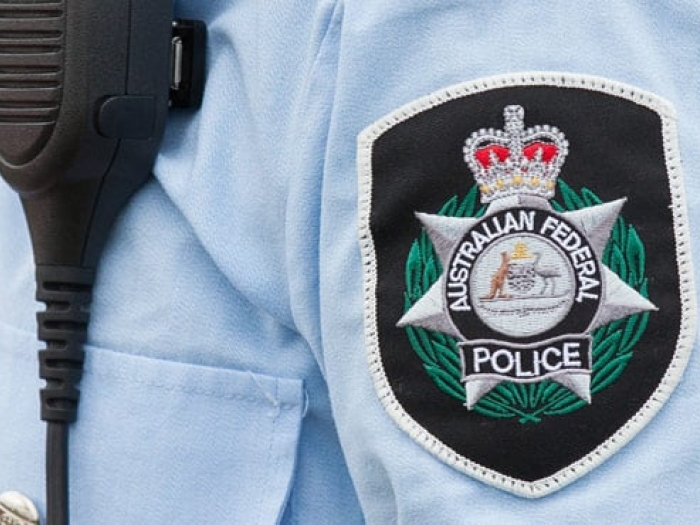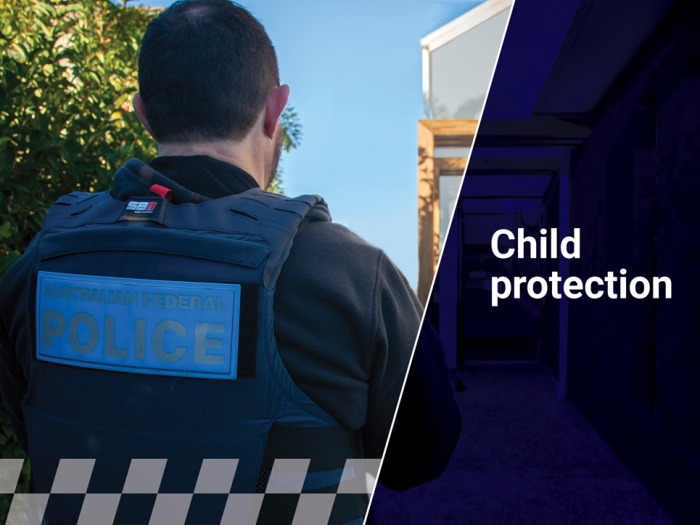International cooperation leads to 92 children removed from harm in 2023
Child exploitation and abuse investigations by the AFP and international partners have resulted in 92 children being removed from harm in the Philippines in 2023.
The interventions are a direct result of the Philippines Internet Crimes Against Children Center’s (PICACC) work to protect children.
The PICACC was jointly established in 2019 by the Philippine National Police (PNP), Philippine National Bureau of Investigation, the AFP, UK National Crime Agency and the International Justice Mission. In 2021, Netherlands Police also joined the PICACC.
As 5 December, 2023, PICACC operations have resulted in 92 victims being removed from harm and 15 alleged facilitators arrested this year alone.
This compares with 60 victims being removed from harm and nine alleged facilitators arrested in 2022.
Of these, the rescue of 52 victims internationally and the arrest of eight alleged offenders were a direct result of AFP International Command members in the Philippines facilitating and value-adding to referrals from Australian-based investigations. This includes 16 children removed from harm in a single operation in June 2023.
This was the largest recovery of victims since the founding of the PICACC.
On 20 November 2023, three children were removed from harm and two alleged facilitators of child abuse charged by the PNP in the Philippines after information was provided by the South Australia Joint Anti Child Exploitation Team to the PICACC.
AFP Senior Officer in Manila, Detective Superintendent Andrew Perkins, said the AFP worked relentlessly to detect and disrupt anyone involved in the sexual abuse and exploitation of children.
“These results show the scale of the problem the AFP and our partners at the PICACC are facing,” Det Supt Perkins said.
“But they also demonstrate why it’s so vital for us to work with international law enforcement to protect children online, not just in Australia but overseas.
“Children in the Philippines can be the target of abuse from Australian sex offenders, either by travelling child sex offenders or online child sex offenders, because of the proximity of the two countries, the similar timezones and the high internet connectivity in the Philippines.
“We have a responsibility as a nation and as law enforcement officers to do all we can to bring the people who perpetuate this horrific abuse to justice.”
Attorney Catherine Nolasco, Chief of the National Bureau of Investigation, Anti Human Trafficking in Persons Division said the statistics demonstrated how the Philippines and the Australian Federal Police collaborated in fighting the Online Sexual Abuse and Exploitation of Children (OSAEC).
“Our efforts and hard work in performing our respective mandates in our own jurisdictions result in continued arrests of perpetrators and rescue of children,” she said.
“Rest assured that the National Bureau of Investigation, with its strong partnership with the AFP will continue this relentless fight against OSAEC.”
Since its inception almost five years ago in February 2019, and as of 5 December, 2023, the PICACC has undertaken a total of 228 operations, resulting in the removal of 661 victims from harm and 135 facilitators charged. Of these, 53 of those charges and 229 international victims removed from harm were a direct result of AFP in the Philippines facilitating and value adding to referrals emanating from Australian-based investigations.
The International Justice Mission (IJM) provides legal and logistical support to PNP Women and Children Protection Center and Philippine law enforcement, as well as aftercare to victim survivors.
Child sexual exploitation continues to be a significant issue despite the efforts of law enforcement and other partners, with an increasing prevalence of reported online sexual abuse and exploitation of children around the world.
Combatting child exploitation within Australia and offshore is a key priority for the AFP and the Australian Centre to Counter Child Exploitation (ACCCE).
It is a crime to travel overseas and engage in, encourage or benefit from sexual activity with children. It's also illegal to use a mobile phone or the internet to exploit children sexually.
If you commit crimes against children overseas, the AFP can prosecute you in Australia. The AFP works closely with state and territory police, Australian Government agencies and our colleagues overseas through the AFP’s International Network.
If you're found guilty, you could face life imprisonment.
The ACCCE brings together specialist expertise and skills in a central hub, supporting investigations into online child sexual exploitation and developing prevention strategies focused on creating a safer online environment.
Members of the public who have information about people involved in child abuse are urged to contact the ACCCE at www.accce.gov.au/report. If you know abuse is happening right now or a child is at risk, call police immediately on 000.
If you or someone you know is impacted by child sexual abuse and online exploitation, support services are available at www.accce.gov.au/support.
Research conducted by the ACCCE in 2020 revealed only about half of parents talked to their children about online safety. Advice and support for parents and carers about how they can help protect children online can be found at www.thinkuknow.org.au, an AFP-led education program designed to prevent online child sexual exploitation.
For more information on the role of the ACCCE, what is online child sexual exploitation and how to report it visit www.accce.gov.au.
Note to media:
Use of term CHILD ABUSE MATERIAL not CHILD PORNOGRAPHY
The correct legal term is Child Abuse Material – the move to this wording was among amendments to Commonwealth legislation in 2019 to more accurately reflect the gravity of the crimes and the harm inflicted on victims.
Use of the phrase ‘child pornography’ is inaccurate and benefits child sex abusers because it:
-
-
- indicates legitimacy and compliance on the part of the victim and therefore legality on the part of the abuser; and
- conjures images of children posing in 'provocative' positions, rather than suffering horrific abuse.
-
Every photograph or video captures an actual situation where a child has been abused.
Connect with us:
Follow our Facebook, Twitter, LinkedIn, Instagram and YouTube pages to learn more about what the AFP does to keep Australia safe.
Follow the ACCCE Facebook, Twitter, Instagram and YouTube pages to learn more about what the ACCCE does to keep children safe online.




